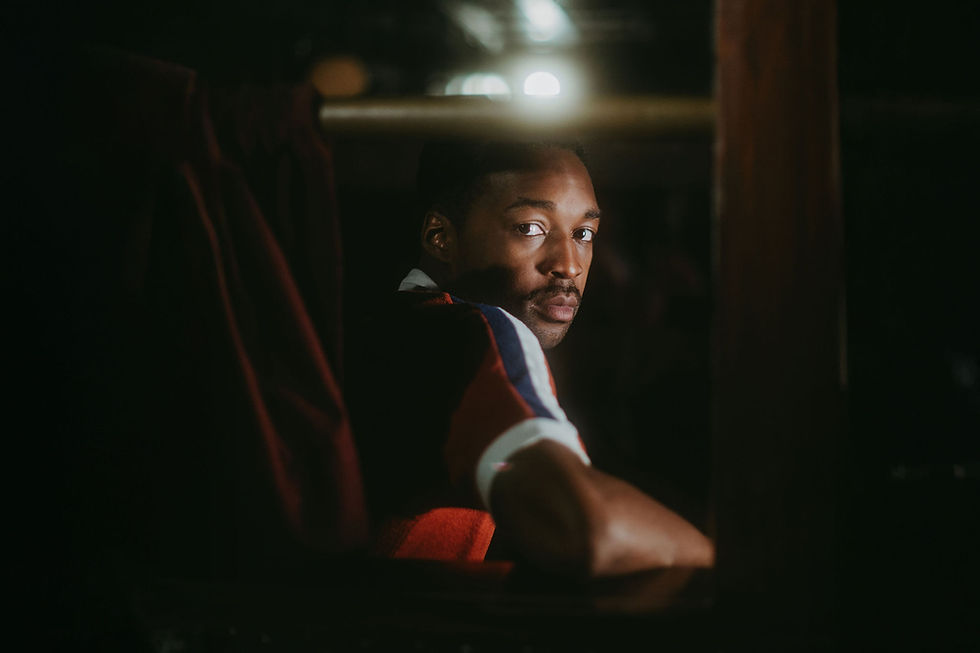DELTA’S DAWN: HOW MERCURY REV CAME TO LOVE, AND COVER, BOBBIE GENTRY: INTERVIEW
- Feb 14, 2019
- 4 min read

If it were true that you don’t mess with perfection then there would be several careers – and hello to you Michael Bolton, Human Nature, anyone involved with Glee, and that’s just off the top of my head – which would still be back in music school.
Messing with perfection, or at least taking another run at some great songs and trying to if not improve on, then at least recontextualise them, is part of the DNA of popular music.
Still, it is a brave bunch who think to themselves, let’s remake Bobbie Gentry’s second album, 1968’s The Delta Sweete, the second of her essence-of-southern-America albums which melded soul and country with a healthy dose of sensuality, a sense of humour, and a miniaturist’s eye for telling detail.
How good is The Delta Sweete? Well, it may have come in the same year as Aretha Franklin released Aretha Now and Lady Soul, and Dusty Springfield’s Dusty In Memphis was recorded – some of the greatest albums of their time, and now – but it wasn’t cast in their shadow.
So, no pressure then. Not least because the initial idea from the all-male group, Mercury Rev, was that they would take on this bold experiment with their regular singer, Jonathan Donahue, as vocalist.
After demo versions were recorded this idea was abandoned at Donahoe’s urging as he sought instead to find singers “to get that spirit of Bobbie, that female spirit of the songs”. With seemingly little effort the band found eager participants on both sides of the Atlantic and in musical corners far from the usual trippy art rock of Mercury Rev: in Norah Jones and Margo Price, Marissa Nadler and Hope Sandoval, Beth Orton and Lucinda Williams, Rachel Goswell and Carice van Houten, Phoebe Bridges and Vashti Bunyan, Suzanne Sundfor, and Laetitia Sadier.
Grasshopper, the singularly named multi-instrumentalist and long-time collaborator with Donahue in Mercury Rev knows this covers/tribute album (reviewed here) was a bold choice. But then he knows why Bobbie Gentry matters so much too.
“Jonathan and I, we heard [Gentry’s 1967 hit song] Ode To Billie Joe when we were little kids, because it was on the radio, but we got into The Delta Sweete about ‘96 or something when we were touring around the south of America,” he recalls. “It was one of those records that suckled us.
“Jonathan wanted to do a version of it and I thought let’s give it a shot. It was going to be something we would put out ourselves, on our website, but as we contacted many of the singers on the record, we ended up having such a great connection, with them personally loving Bobbie Gentry growing up … it grew up into a bigger thing.”

The arrangements were done and most of the music was recorded before the singers were invited. In fact, it was the band who chose the songs for each singer, seeing it “like we were casting these different characters with what we thought were the right approach of voice to convey these stories.”
Some, such as Orton, who wanted to sing the post-coital Mornin’ Glory but was offered instead the more contemplative Courtyard, were initially hesitant, as she told Billboard magazine. “And then all of their beautiful faces showed up and suddenly, there we are doing this track and they just encouraged me every step of the way”.
If the result recasts these songs in ways that both respect the roots but aren’t beholden to them it’s partly down to those singers of course and the way they brought their own styles to the party. Orton’s Courtyard has the sensitive weariness of her best work; Williams’ take on the add-on track Ode To Billie Joe feels like an atmospheric outtake from one of her darker records.
Or take the way Bunyan, the now venerable English folk singer, approaches Penduli Pendulum: “That song is kind of delicate, fragile in a way, and Vashti’s voice is so delicate it could blow away,” says Grasshopper. “We thought it would fit perfectly.”.
And how Sadier, who made her name with the electro/art-pop group Stereolab, brings some droll distance to her interpretation of Mornin’ Glory, which was almost deliriously sultry on the original album.
“She sang it and it was just perfect and we just wanted to keep it very minimal. We thought of it as a kind of Brill Building or Bacharach and David song and we wanted to treat it a little bit like that and keep her intentions there too.”
But the album’s core strength is the subtly varied but also subtly subversive arrangements and production from Mercury Rev. And that was a surprise.

It’s fair to say that one of things that worried some of us who were already Gentry fans and had appreciated how her restrained original arrangements allowed voice and the grooves freedom, was the possibility of Mercury Rev overwhelming the songs.
Grasshopper is not insulted by the implications of the fear I expressed.
“Yes, Mercury Rev, we are known for being cinematic and very big,” he chuckles. “But we restrained ourselves a lot as far as the arrangements, stripping things away and not having big drum kits. We wanted it to be more smoky and mysterious, and a real foggy going through the Delta spirit.”
It's worked. Maybe so well that Grasshopper even suggests – whether jokingly or serious, it’s hard to tell – they may return next year with a take on Gentry’s debut album, Ode To Billie Joe.
Bold? Brave? Well, it wouldn’t be the first time.
Bobbie Gentry’s The Delta Sweet Revisited is out now through Inertia




Comments